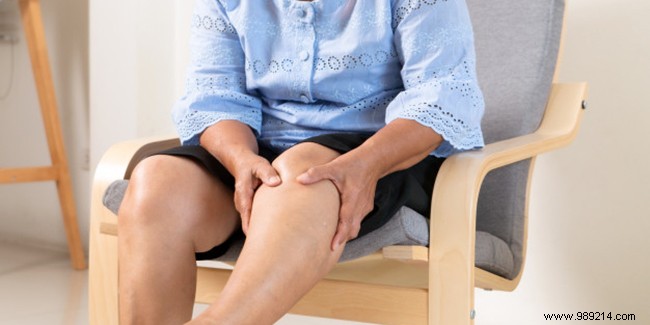
Water is the main component of our body and contributes to the good health of our organism. Unfortunately, it happens that its regulation system is jammed with the consequence in particular of problems of circulation and essential evacuation of this water. This water retention, which stagnates in a part of our body, then results in visible edema such as swelling of the legs, and in particular of the feet, calves and ankles. This problem is due as much to internal dysfunctions of our body as to external causes. The 6 possible causes of fluid retention and swollen legs.
The hormonal changes that we experience throughout our lives can be the cause of water retention in any part of our body. This is why women are mainly those who suffer from this problem, for example, during pregnancy or menopause.
Certain diseases, such as chronic heart failure or phlebitis, which impair blood circulation in the blood vessels resulting in venous insufficiency, can be the cause of water retention and therefore swollen legs in particular.
In the same way, kidney or liver disease can lead to the accumulation of water in the blood vessels and cause swelling in certain parts of the body, including the lower limbs in particular.
If water retention in our body, with the consequence in particular of the swelling of the legs, is often caused by an organic dysfunction, external causes can cause these problems.
Exposure to heat can thus, for example, promote water retention. Indeed, the heat helps to dilate our blood vessels. However, these contain water essential to our body, but high temperatures cause this water to escape abnormally from these vessels to infiltrate our tissues where it stagnates and causes swelling, too. called edema.
This is why people who are already prone to water retention and easily swollen legs should avoid hot environments or exposure to the sun. In this case, swollen legs can be relieved by elevating them or sprinkling them with cold water, especially on the calves.
Water retention can also be caused by an improper diet. Eating too salty in particular promotes the poor circulation of water in our body which then tends to accumulate, and especially in the legs which begin to swell.
On the other hand, you should know that sugar is not better for our body because it also helps to promote water retention, just like a diet low in protein.
Not moving enough or sitting too long are factors that are often the cause of water retention in our body and swollen legs. A problem unfortunately experienced by older people who are less inclined to physical activity or who do not have the possibility of moving as they would like due to a disability or loss of autonomy.
Indeed, without physical activity, the muscles no longer play their role of regulation and therefore no longer promote the proper circulation of water in our body. Water therefore tends to stagnate, particularly in the lower limbs and cause them to swell.
This is why it is generally recommended to play sports to avoid water retention. For seniors, a bit of walking is a good solution to avoid swollen legs.
Certain medications prescribed in case of hypertension or diabetes, for example, can have the undesirable effects of water retention in the body and swelling of the legs.
In the same way, hormonal treatments, or drugs based on anti-inflammatories can help disrupt the proper regulation of water and cause it to stagnate in certain places, including the legs, ankles and calves.